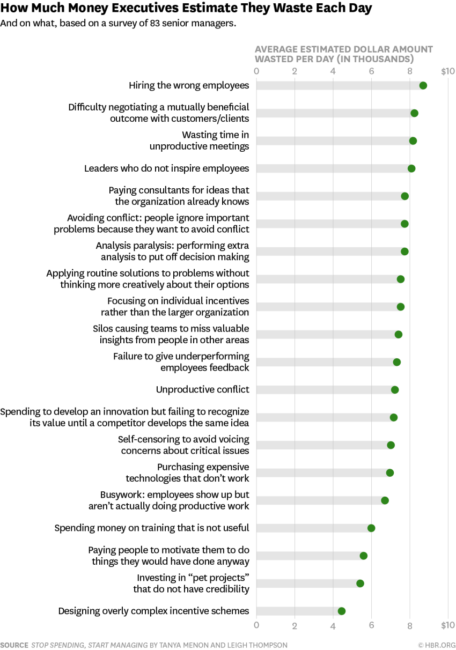I’m willing to bet that for many businesses, the word happiness isn’t scrawled in ink at the top of the priority list.
“We’re here to work not play,” some might say. “Just get the job done and keep our clients satisfied.” I’ve even heard others told, “I’m not here to make friends. Your happiness is not my priority”.
So here’s perhaps an odd question… Why not?
A happy place to work is a profitable place to work. Some studies suggest that happy employees are less likely to leave, more likely to satisfy clients, and more likely to engage in making others happy, which creates positive morale throughout the organization. But it’s arguably very difficult to measure happiness. After all, happiness is subjective to each person – and how can we possibly keep everyone happy?
Let’s focus instead on something we can measure, something that is the opposite of happiness in the workplace: office problems. Published in Harvard Business Review, a new study explores the tangible costs incurred by companies using time, energy, and resources to resolve issues. In the course of a normal workday, 83 senior executives estimated that their companies waste an average of $144,500 per day on a list of items that range from unproductive meetings to unproductive conflict. That adds up to an astounding $52,757,574 per organization per year – all spent on people problems.

When you begin to put a price tag on people problems at work, buying a little happiness suddenly doesn’t seem like such a bad idea after all!
Outside of the workforce, some might say that people are obsessed with finding happiness. In just 41 seconds, a Google search on ‘how to find happiness’ came up with 25.3 million results. Amazon boasts more than 66,000 books for sale with ‘happiness’ in the title. And our quest for work-life balance? You can take your pick of self-help providers; everyone from Forbes to the Mayo Clinic to Web MD is offering advice.
So back to that idea of maintaining a separation of happiness and work. Let’s change that question into an exclamation: Why not!
Hire a job coach. Bring in a consulting firm. Reach out to a talent management agency. Or even, simply adjust internal roles to focus on facilitating professional development. There are many programs and opportunities available to mentor our workforce. It’s ultimately about building up our individuals so that they grow confident and happy in their positions, and in effect build business, generate new leads, and create a ripple effect that increases morale throughout the organization.
After all, a happy place to work is a profitable place to work.


